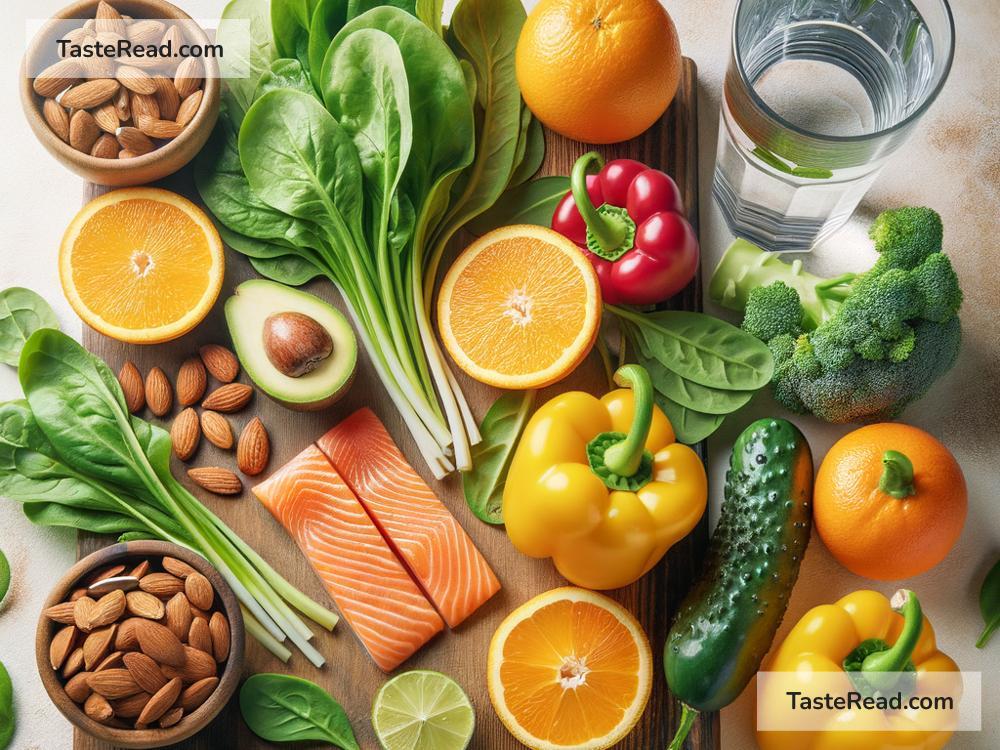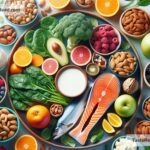Foods That Reduce the Risk of Rib Damage
When we think about our bones, the first thing that often comes to mind is calcium. While calcium is important, there’s far more to keeping our bones, including our ribs, strong and healthy. Your ribs protect essential organs like your lungs and heart, so keeping them strong should be a priority. A balanced diet with the right nutrients is key. Fortunately, certain foods can help reduce the risk of rib damage and promote overall bone health. Let’s explore these foods in simple terms.
Why Do Strong Ribs Matter?
Ribs are bones that provide structure and protection for the upper part of your body. Weak or brittle bones can break more easily after falls or accidents. In severe cases, broken ribs can lead to serious complications because ribs surround vital organs like your heart and lungs. This makes it important to maintain healthy rib bones as you age.
Nutrients That Help Your Ribs Stay Strong
Your ribs, like every bone in your body, need certain nutrients to stay sturdy. The most important nutrients for bone health are:
- Calcium: Builds bone strength.
- Vitamin D: Helps your body absorb calcium.
- Magnesium: Supports bone structure.
- Vitamin K: Helps your bones bind calcium effectively.
- Protein: Maintains bone density and supports repair.
- Omega-3 fatty acids: Reduces inflammation that can weaken bones.
Simply put, eating foods rich in these nutrients can help protect your ribs from damage.
Foods That Protect Your Ribs
Here’s a list of easy-to-find foods that are great for rib and overall bone health:
1. Dairy Products
Milk, yogurt, and cheese are some of the best sources of calcium. Calcium strengthens your bones, including the ribs. If you’re lactose intolerant or don’t consume dairy, there are alternatives like almond milk or soy milk fortified with calcium.
Bonus Tip: Choosing low-fat or fat-free dairy options can also help you avoid extra calories.
2. Leafy Green Vegetables
Vegetables like spinach, kale, and collard greens are packed with calcium, magnesium, and vitamin K. These nutrients work together to build strong, healthy ribs. Plus, they’re low in calories, so you can eat them regularly without worrying about your weight.
3. Fatty Fish
Fish like salmon, mackerel, and sardines are rich in vitamin D and omega-3 fatty acids. Vitamin D helps your body absorb calcium more effectively, while omega-3s reduce inflammation that can weaken bones. Canned sardines even contain small, edible bones, providing an extra boost of calcium.
Bonus Tip: If fresh fish isn’t accessible, try canned options or fish oil supplements.
4. Nuts and Seeds
Almonds, walnuts, and flaxseeds are excellent sources of magnesium, vitamin E, and omega-3 fatty acids. These nutrients promote bone strength and protect against inflammation. Snack on a handful of nuts or sprinkle seeds on your salads, yogurt, or smoothies.
5. Eggs
Eggs are a convenient source of protein and vitamin D. While eggs don’t provide a huge amount of vitamin D, they still contribute to bone health when included as part of a balanced diet.
6. Fruits Rich in Vitamin C
Citrus fruits like oranges, strawberries, and kiwi contain vitamin C, which promotes collagen production. Collagen helps maintain the structure of bones, making them less likely to break. Vitamin C also contributes to healthier joints around your ribs.
7. Whole Grains
Whole grains like oats, quinoa, and brown rice contain magnesium that’s essential for bone health. Whole grains are nutritious and provide long-lasting energy for your body.
8. Beans and Lentils
Beans, such as black beans and chickpeas, are high in calcium, magnesium, and protein. These nutrients work together to strengthen your ribs and keep your bones in top shape.
9. Bone Broth
Bone broth, made by simmering animal bones, is rich in collagen, calcium, and magnesium. Drinking bone broth regularly can improve bone density and help prevent rib damage.
10. Fortified Foods
Certain foods like cereals, juice, and plant-based milks are fortified with calcium and vitamin D. If you’re not getting enough of these nutrients from natural sources, fortified foods can fill the gap.
Habits That Support Rib Health
It’s not just about what you eat; your lifestyle plays a role in maintaining strong bones, too. Here are a few simple tips:
- Stay Active: Regular exercise, especially weight-bearing activities like walking, jogging, or yoga, strengthens your bones.
- Get Enough Sunlight: Sunlight helps your body produce vitamin D naturally, so spending time outdoors can benefit your bones.
- Limit Risky Foods: Reduce your intake of sugary drinks, excessive salt, and alcohol—they can weaken your bones over time.
- Avoid Smoking: Smoking can damage your bones and slow down their repair.
Final Thoughts
Your ribs play a vital role in protecting your organs, so keeping them strong is essential. Including calcium-rich foods like dairy, fish with vitamin D, leafy greens, nuts, and whole grains in your diet can drastically reduce the risk of rib damage. Combine a balanced diet with regular exercise and smart lifestyle choices for optimal bone health.
Remember, taking care of your ribs doesn’t have to be complicated. Small changes to your diet and habits can go a long way in ensuring strong, healthy bones for years to come. Let your meals be your medicine, and enjoy the benefits of a rib-friendly diet starting today!


